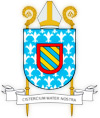12th – 14th CenturiesThe Christian Reconquest corresponds to the Muslim expulsion from the Iberian Peninsula. The battles took place in the entire territory, destroying many vines.
In 1143, D.Afonso Henriques founded the
Condado Portucalense (free translation: County of Portugal) and in 1249 Portuguese territory was free of Muslim occupation. During this time, the royal authorities donated several fields where the growing of vines was compulsory. This way, people would set up house in those fields and vine culture would gain economic relevance.

On top of that, the area for growing vines was widely extended after some religious, military and monastic orders, such as the Cistercian, settled down in Portuguese territory.
At the beginning of the 12th Century it was the clergy who possessed the county’s farms, where they grew fruits and vines. The Cistercians monks, for whom the growing of vines was very important, were responsible for improvements in winemaking. Wine would be used in religious ceremonies, sold in markets and exported. Moscatel de Setúbal was much appreciated in northern Europe.